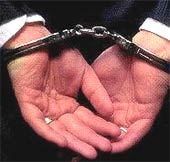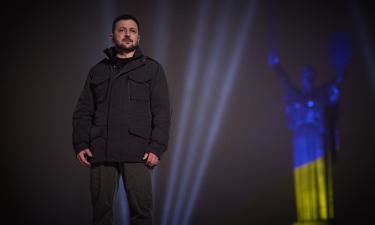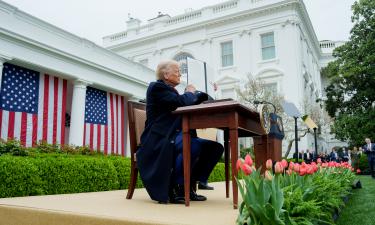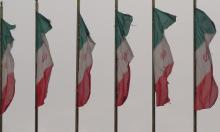Great fortunes do not guarantee legal immunity to anyone
Oligarchs and tycoons can be jailed for financial fraud in practically any country of the globe
Imprisoned Russian oligarchs are not alone in the world, in spite of the fact that Russian liberals try to prove the opposite. Billionaires in jail can be found all over the world. Three fraud and tax evasion trials against top managers of largest corporations started in various countries of the globe this week. 
A landmark trial against a well-known Japanese billionaire, Yoshiaki Tsutsumi, who used to be called the king of the rich men in the 1980s, has recently begun in Japan. Tsutsumi owned the Seibu Group, which incorporated a network of hotels, various sports establishments and a giant railway company Seibu Railway. The Japanese billionaire confessed that he had fabricated financial documents with a view to conceal his illegal share of stocks that he owned at Seibu Railway.
In addition, Tsutsumi confessed his involvement in illegal operations with securities, in which the secret information about the activity of the issuing company was used. 71-year-old Yoshiaki Tsutsumi confirmed prior to the start of the court hearings that the facts had been formulated in the trial correctly.
The scandal with the shares of Seibu Railway Co. occurred a year ago. Tsutsumi had to give up all his posts in the Seibu group in April of 2004. It took a year for the investigation to last, and it was eventually completed with the arrest of one of the richest men in the world. It is noteworthy that Tsutsumi used to top Forbes' list of richest men list from 1987 to 1990.
Yoshiaki Tsutsumi used to have extensive links in the political world of Japan; he was a close friend of Japanese Prime Minister Koizumi. Tsutsumi provided comfortable apartments for both official and unofficial meetings of Japanese ruling and opposition parties in luxurious hotels of the Prince Hotel chain that he owned. Tsutsumi used to chair the National Olympic Committee of Japan too. It is believed that Winter Olympics of 1998, which were held in Japan, Nagano, were possible to take place owing to Mr. Tsutsumi's efforts. However, the billionaire's national accomplishments did not save him from the criminal prosecution.
Brazilian special services arrested top managers of the nation's largest brewing company yesterday. The Brazilian police arrested about 70 managers of the company Schincariol on tax evasion allegations. Five of the detainees belonged to the family of the company owner. According to the Brazilian fiscal service, the lengthy investigation proved that the brewing corporation had evaded paying some $416.7 million of taxes.
The company's activity has been virtually stopped. About 7,000 employees of Schincariol may lose their jobs as a result of the scandal. Furthermore, about 25,000 people involved in production and sales procedures may suffer considerable losses too.
Similar stories take place in South Korea too. The former head of the Daewoo corporation, the production of which is widely presented on the Russian market, 68-year-old Kim Woo-Choong, was arrested a week ago. The businessman returned to his fatherland after he had spent six years hiding from the Korean justice abroad. Kim Woo-Choong has been charged with embezzlement and fraud.
Daewoo exported its products in the sum of $17.6 billion at the end of the 1990s, which made up some 13 percent of the national export. One may say that Daewoo could be compared to the Russian oil giant Yukos in this respect. The South Korean corporation employed about 250,000 people during those years.
Daewoo went bankrupt in 1999, when it turned out that its debts were estimated at $80 billion. The administration of the corporation acknowledged later that they had forged documents to increase the cost of the company's assets. Daewoo used the fake information to raise ten billion dollars of loans in Korean banks. The head of the corporation preferred to escape from the criminal prosecution.
These financial scandals, which occurred in various parts of the globe, have one common feature: the people, who could be described as financial kings in their own states, were eventually charged with fraud at the end of their sweeping careers. The governments of all countries realize that fraud jeopardizes the entire national structure.
It is noteworthy that oligarchs and tycoons on trial are not trying to do anything to save themselves from justice of the state, which gave them an opportunity to amass great fortunes and power. The Russian society ought to pay attention to the foreign experience at this point.
The above-mentioned list of considerable financial crimes can be continued with the bankruptcy of USA's Enron and Italian food enterprise Parmalat. One may say that tycoons do not have any special immunity. As experience shows, even incredibly wealthy people have to obey the law.
Sergei Malinin
Subscribe to Pravda.Ru Telegram channel, Facebook, RSS!




